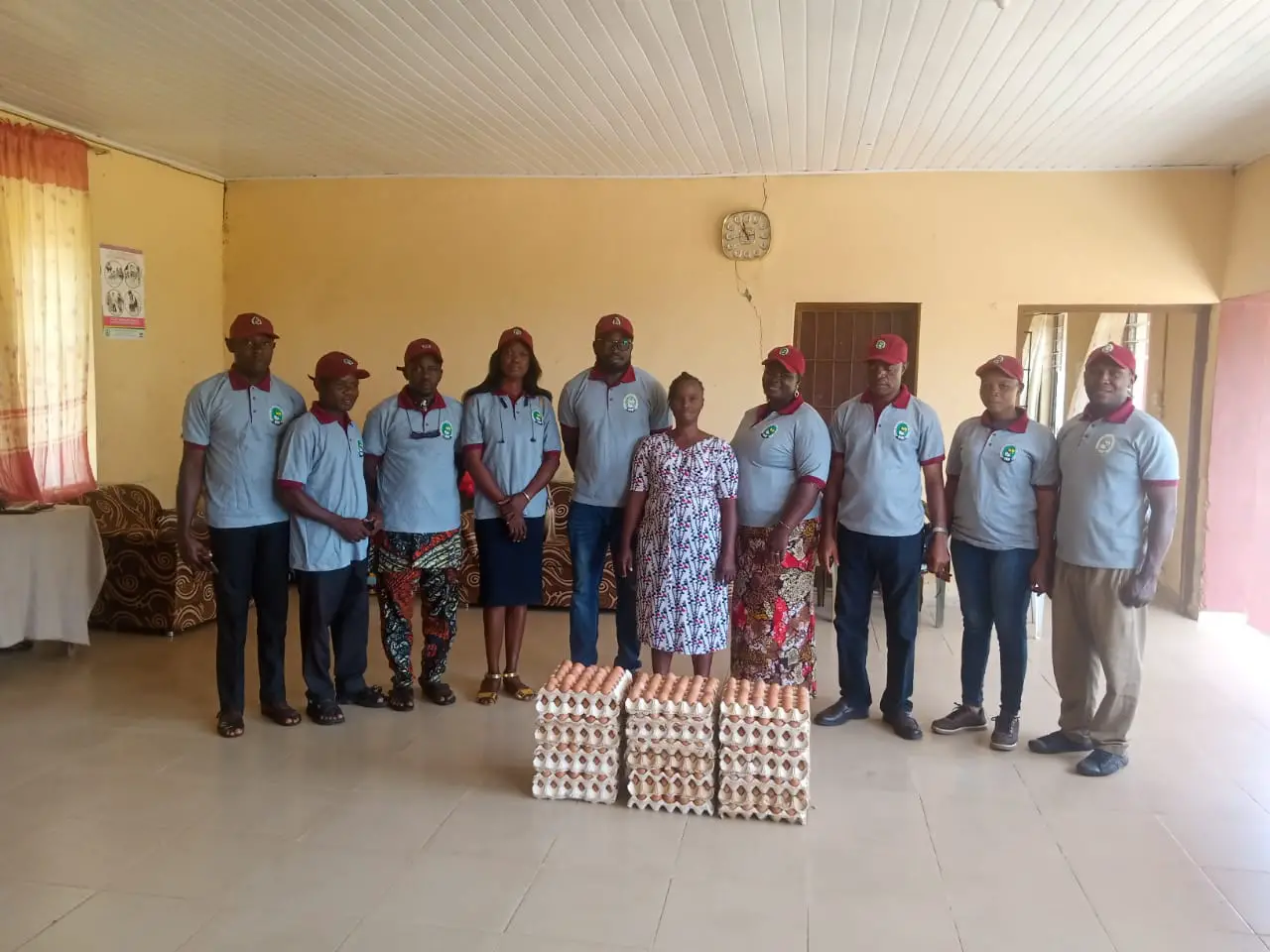Poultry Farmers in Ekiti Celebrate World Egg Day, 2023

Yemi Olakitan
Members of the Poultry Association of Nigeria’s (PAN) Ekiti State chapter has celebrated World Egg Day 2023 alongside their counterparts throughout the world on Friday.
Members of the Association visited the Erelu Adebayo Children’s Home in Iyin, Ekiti, in the Irepodun/Ifelofun Local Government Area of the state as part of the festivities for this year’s celebration. They congratulated the kids there and gave them fresh crates of eggs as a contribution to their upkeep.
Their presence at the facility was anchored on the theme of this year’s celebration, “Egg For A Healthy Future,” underscoring the point that who are the future, if not the children? According to Mr. Alonge Oluwasetemi, Chairman of the Association in the state, World Egg Day is an annual celebration that occurs every 2nd Friday in October. Therefore, it is important to rejoice with the kids and emphasize the advantages of eating eggs.
“Eggs are excellent, and they continue to be the least expensive or most economical source of animal protein available today.
And we, the poultry farmers in Ekiti state, put in a lot of effort to ensure that we give our neighbors in Ekiti state high-quality eggs and birds.”
Oluwasetemi stated that their business has a very extensive value chain that begins on the farm where they grow chickens and make eggs. He said that the Association can brag about having a large workforce in the agricultural sector as well as in other parts of the value chain, such as transportation, drivers, and merchants who market the products. So, we interact with a lot of people. We significantly contribute to reducing the unemployment issue. Nigeria continues to be Africa’s top egg producer today.”
Regarding the difficulties the Association faces, he asserted that every company operation faces difficulties and that poultry producers are strong, tenacious individuals. Unfortunately, they were plagued by a number of issues beginning in 2020, during the COVID-19 epidemic. He claimed that the lockdown’s unfavorable impacts were felt by them. He lamented the circumstance, saying it led to weak sales of their goods, with exasperation.
“Additionally, this reduced our production by about 50%. So, while we were getting over that, the Central Bank of Nigeria’s (CBN) cashless policy slammed us earlier this year. Our industry is heavily reliant on cash. The bad impact of not having money hit us hard. Since our business is producing every day, we were producing but unable to sell due to the lack of legal tender.”
The Chairman added that because they make perishable goods, if they are not ready to produce within a week or two, they will suffer a complete loss.
He regretted that the majority of their operating capital had been utterly destroyed. He claimed that the elimination of fuel subsidies hit them at the same time they were attempting to recover from the cash problem. Therefore, they wind up spending all of their earnings on fuel and transportation.
He emphasized that these are only a few of the issues that have seriously impacted the poultry industry. Maize and soy beans, the two main ingredients used to make poultry feed, are now scarcely found on the market. The head of the poultry group claimed that the cost of the few products that are still accessible has increased by close to 200–300%, making it impossible for farmers to buy them.
